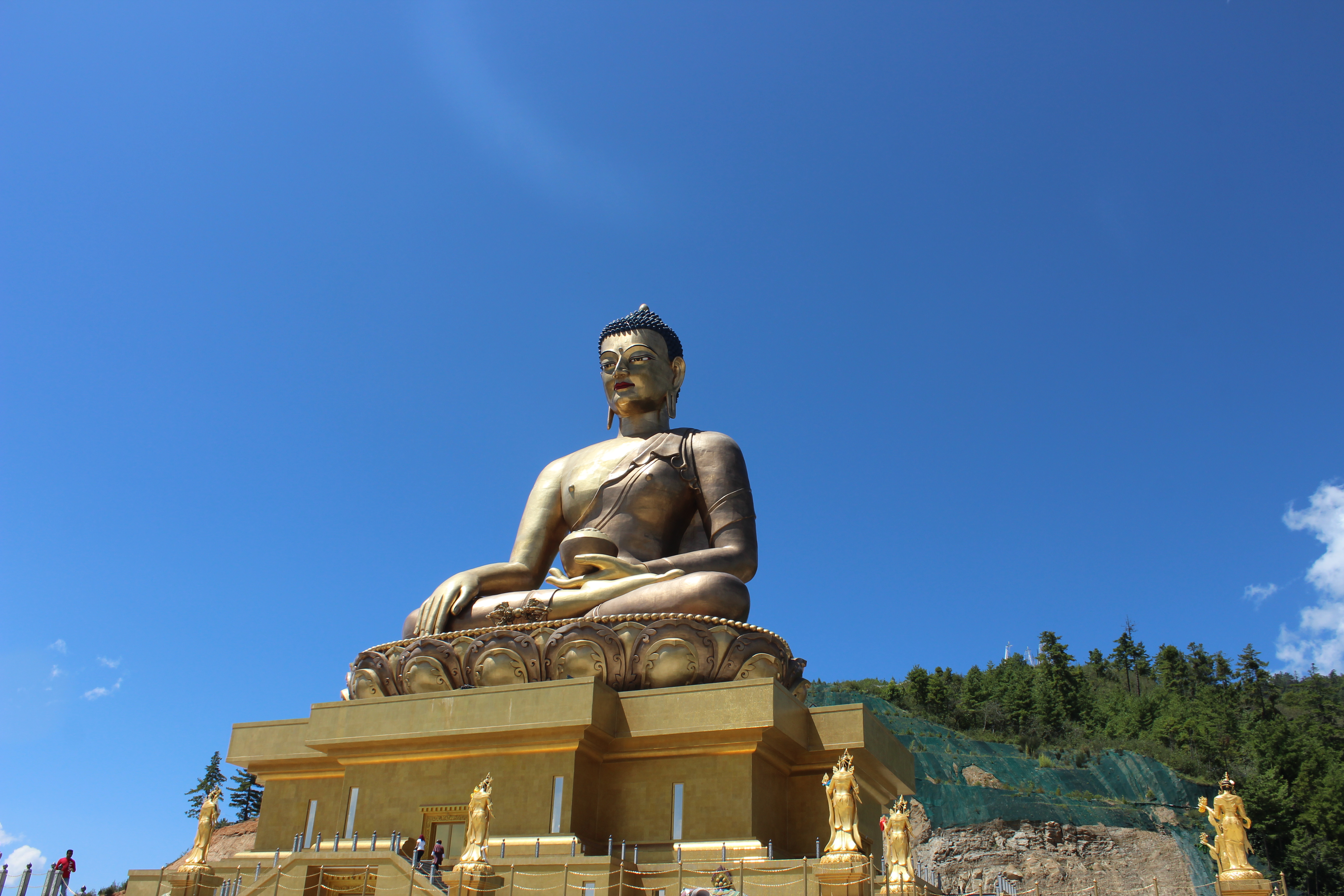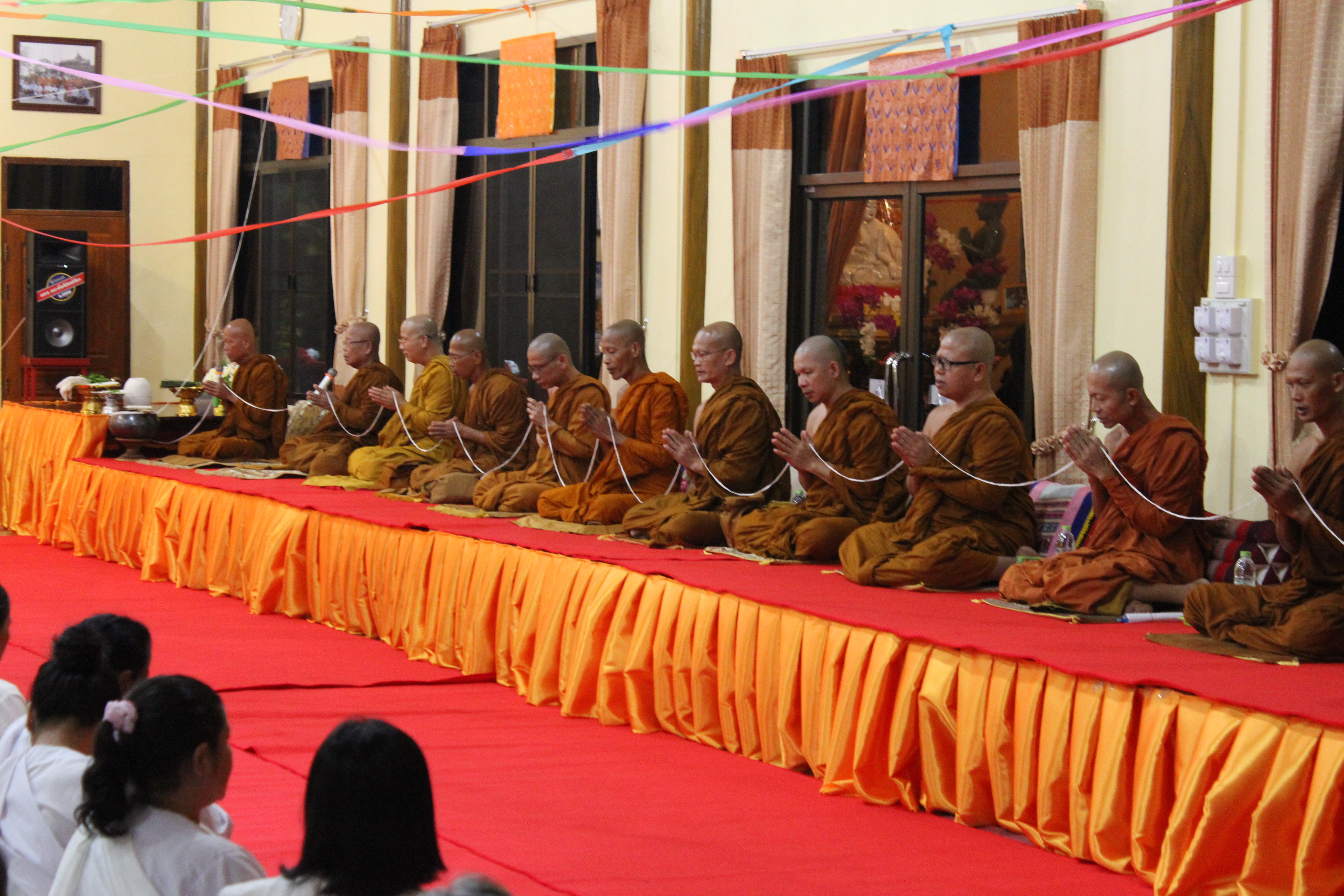Buddhism: Silence is Better than Language…

You can say ‘namaste’ all day and prove little. You can say nothing and prove much. Or you can sit in samadhi all day and prove everything, ‘samadhi’ being that meditative state of total absorption, in which the threads of language are locked out at the gates without credentials for entry. Because language is that element of mental activity tainted with the brush of corruption, duality at its most obvious, subjects verbing adjectivized objects so adverbially that prepositions threaten to revolt and assume post-positions, conjunctions just looking for somewhere to put an ‘and,’ ‘but’ only ‘if’ conditions can be avoided, so tenses only indicative, nothing subjunctive allowed.
All of which is to say that there’s more to life than language, OR logic, and often it’s even positively negative, if you care to find some meditative transcendence for even a moment in this increasingly noisy world or ours, crowded and clusterf*cked almost beyond recognition of the sublime Nature that it once was, notwithstanding the sporadic violence inherent to that same Nature.
Language is a double-edged sword. On one hand, it allowed homo sapiens to subdue, or outdo, all its competitors in the competition for the low-hanging fruit of life, those skills allowing multiple individuals to act as one for the purpose of being ‘firstest with the mostest,’ skills indispensable for survival when life is on the line and food is not yet on the table. This can be proven conclusively with the timelines of our competitors’ mutual demise in the face of sapiens’ overwhelming superiority.
On a more practical day-to-day basis, it’s simply an easy recipe for mindfulness, antidote for the common complaint of ‘monkey mind,’ during which our minds are so possessed of internal chatter that it’s virtually impossible to think properly, much less achieve some level of ‘calm abiding,’ i.e. samatha. So, ironically, the very thing that is our military strength is our existential downfall—unless we can control it. This is the unique sapiens challenge to zoological superiority and key to the future ascendance of our species—or not. Thus, Buddhist practice is more than an individual accomplishment; it’s truly intrinsic to our survival.






 Though not often heralded as such, language is arguably the world’s greatest invention, and I think that, like most inventions, it might have a limited lifespan of prime utility, and it’s a very arguable point that the world just might be better off without it. I don’t arrive at this conclusion lightly, given that fact that I love language with all my heart and all my soul, but if it’s outlived its usefulness, then it just might need to be put out to pasture (and there just might be something better)…
Though not often heralded as such, language is arguably the world’s greatest invention, and I think that, like most inventions, it might have a limited lifespan of prime utility, and it’s a very arguable point that the world just might be better off without it. I don’t arrive at this conclusion lightly, given that fact that I love language with all my heart and all my soul, but if it’s outlived its usefulness, then it just might need to be put out to pasture (and there just might be something better)… You know the American dream, the whole world does: two-story house and a two-car garage, two kids in the breakfast nook and the neighbor’s kids coming over later, God’s little acre in a sanctified suburb, full ownership and bulging bank accounts, stay-at-home mom and a rising-star dad, with a bachelor’s degree in business and a lotta’ backyard gossip, Saturday at the zoo and Sunday barbecue, PTA meetings and postman’s daily greetings, fried chicken and crispy F
You know the American dream, the whole world does: two-story house and a two-car garage, two kids in the breakfast nook and the neighbor’s kids coming over later, God’s little acre in a sanctified suburb, full ownership and bulging bank accounts, stay-at-home mom and a rising-star dad, with a bachelor’s degree in business and a lotta’ backyard gossip, Saturday at the zoo and Sunday barbecue, PTA meetings and postman’s daily greetings, fried chicken and crispy F Falling in love is probably the closest we’ll ever get to magic in this life, that unexplainable attraction, the eyes the mouth the hair the touch the smell, irreducible to rationality, or math, or the silly logic of syllogisms, so this is reason enough to be suspicious already, correct? BUT—this is the goldfield that Christianity tries to mine—the swoon and the swearing and the general lack of sobriety, and stopping just short of climax, over and over, the better to forestall final payment, in order to accrue interest…
Falling in love is probably the closest we’ll ever get to magic in this life, that unexplainable attraction, the eyes the mouth the hair the touch the smell, irreducible to rationality, or math, or the silly logic of syllogisms, so this is reason enough to be suspicious already, correct? BUT—this is the goldfield that Christianity tries to mine—the swoon and the swearing and the general lack of sobriety, and stopping just short of climax, over and over, the better to forestall final payment, in order to accrue interest… Beyond all the fibs and fantasies, behind all the lies we tell ourselves, is the l-DNA we create for ourselves in language, a trail to our past and an arrow to our future, and pretty much the only thing we had before y-DNA and mt-DNA, revealed now to be something like a parallel universe to those more precise measurements, yet far more analogous to the largely hypothetical cultural tracks and traces, like c-DNA, full of long lonely nights and broken promises, frightened misgivings and belated thanksgivings…
Beyond all the fibs and fantasies, behind all the lies we tell ourselves, is the l-DNA we create for ourselves in language, a trail to our past and an arrow to our future, and pretty much the only thing we had before y-DNA and mt-DNA, revealed now to be something like a parallel universe to those more precise measurements, yet far more analogous to the largely hypothetical cultural tracks and traces, like c-DNA, full of long lonely nights and broken promises, frightened misgivings and belated thanksgivings…
Reply